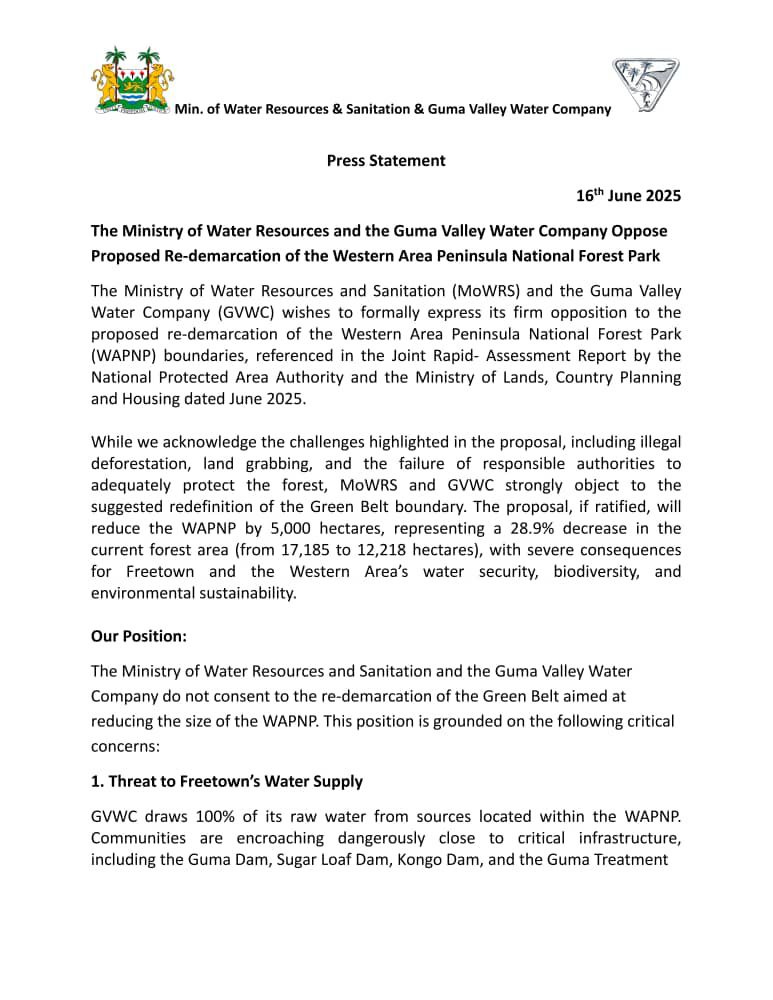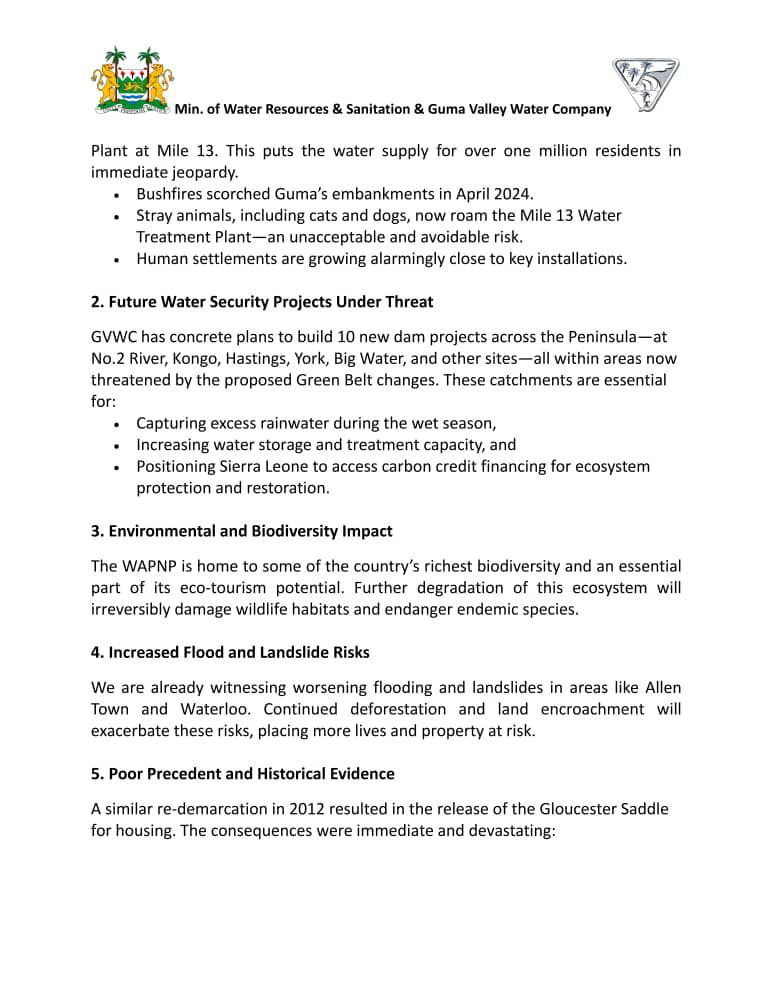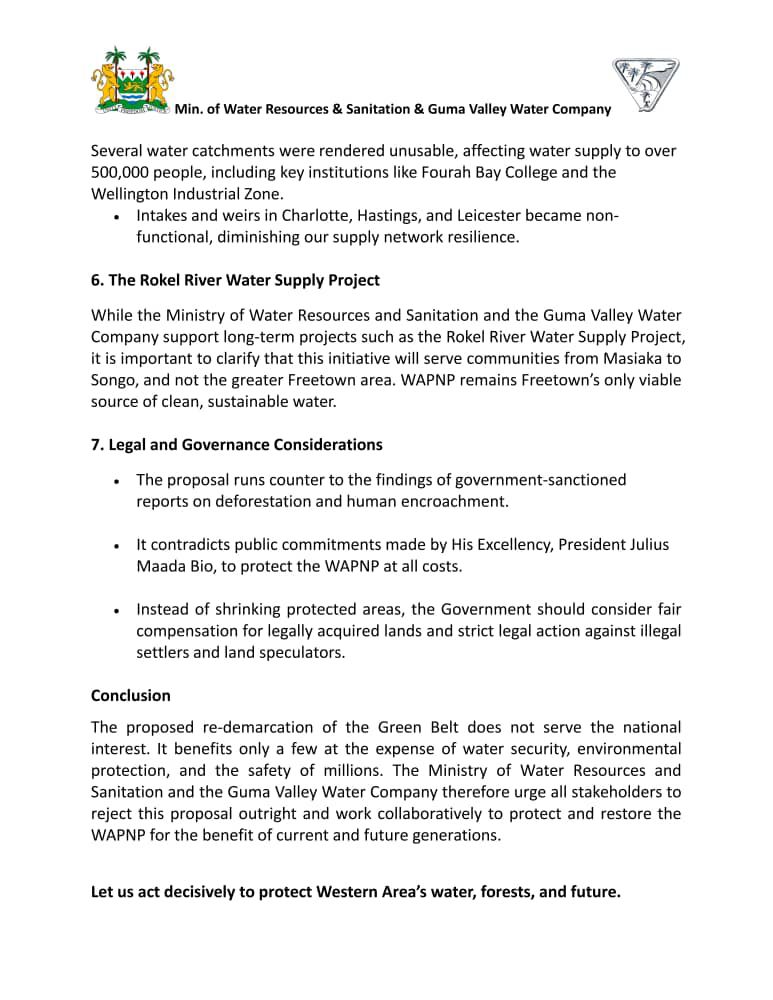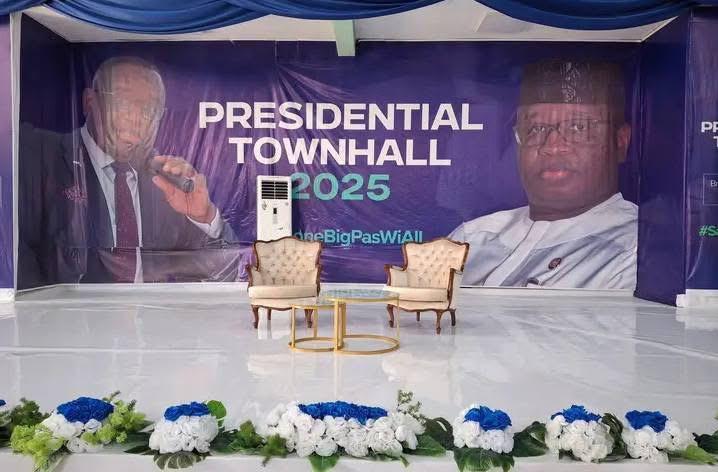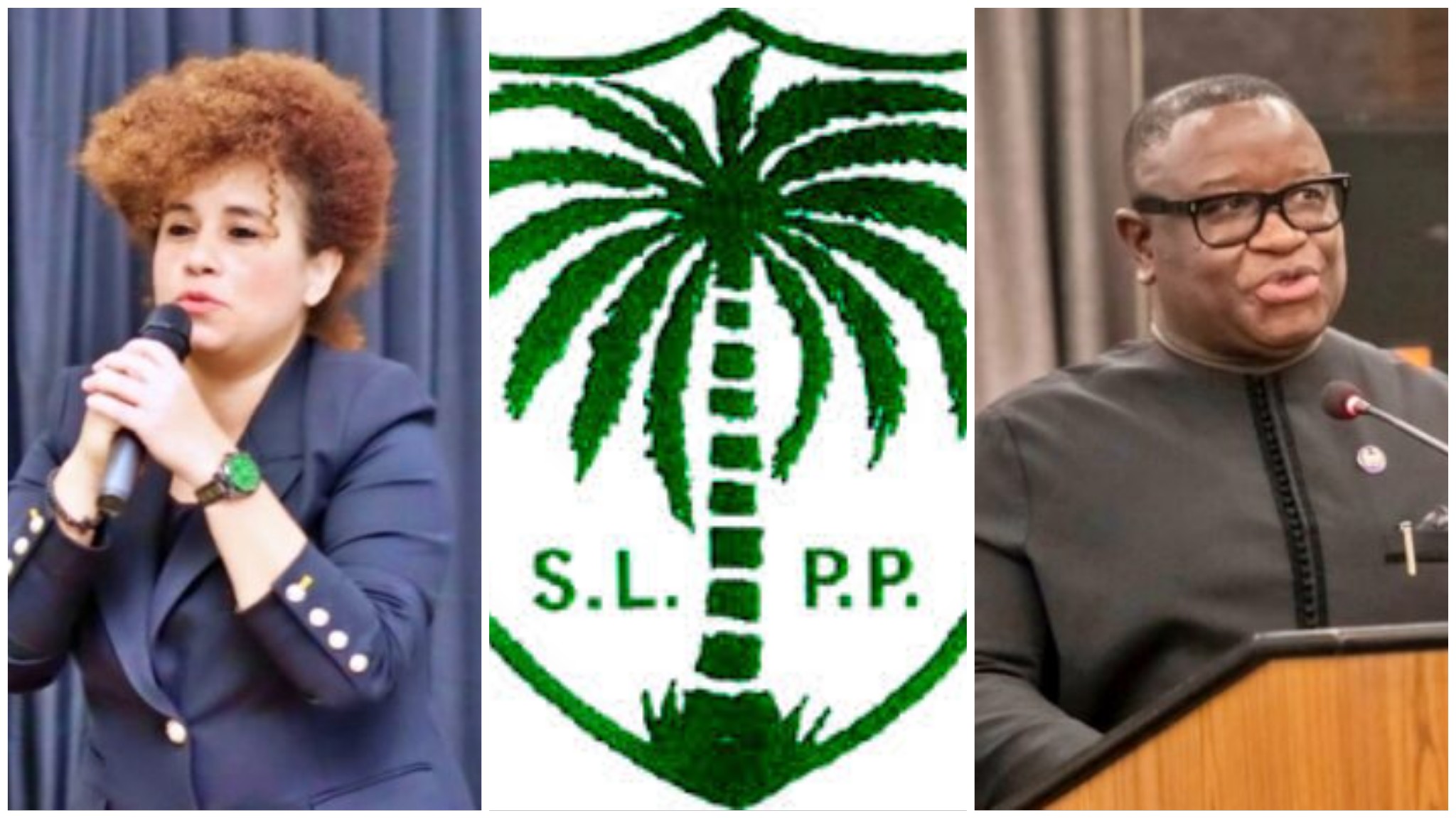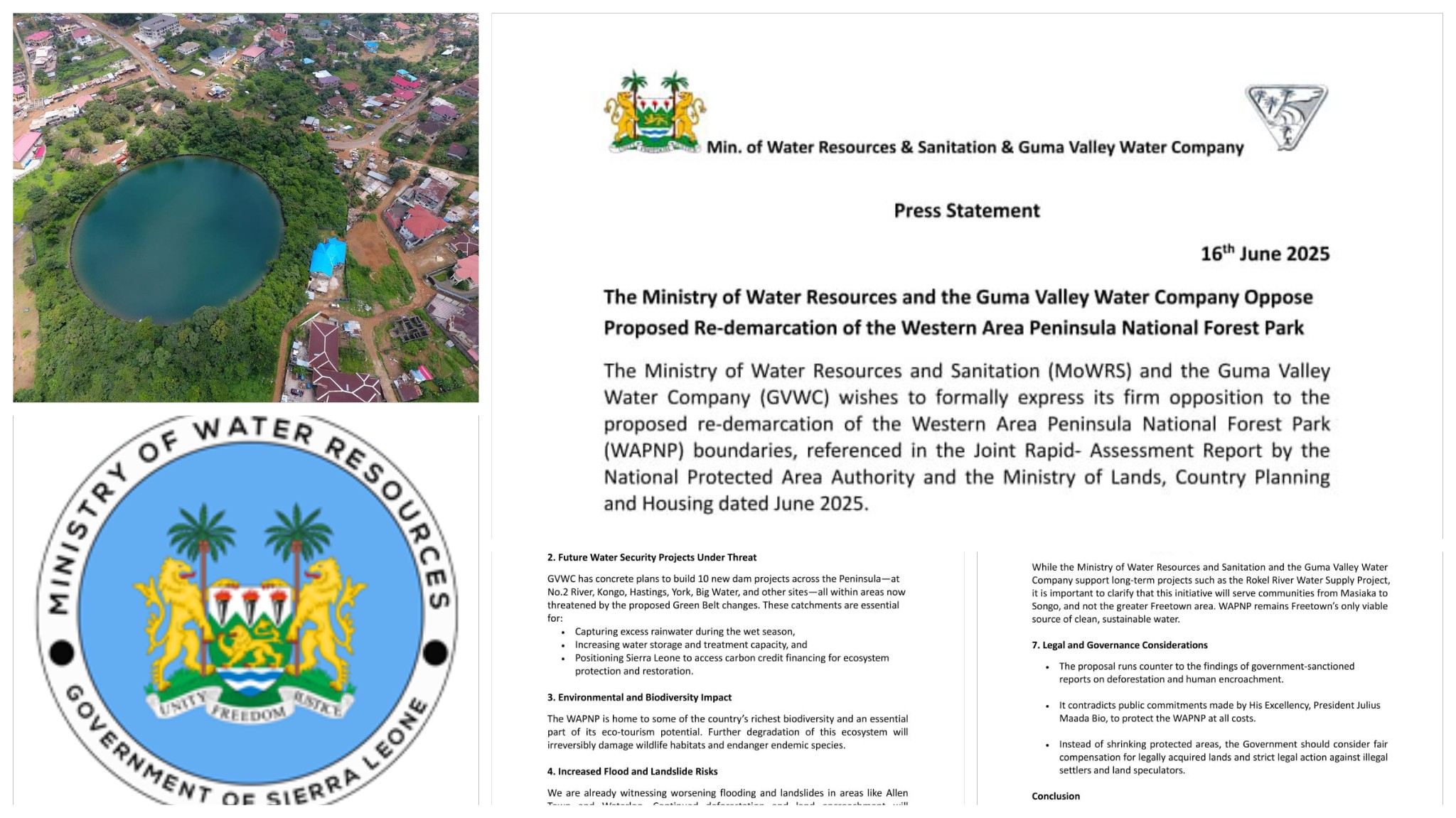
The Ministry of Water Resources and Sanitation (MoWRS), in partnership with the Guma Valley Water Company (GVWC), has issued a strong statement opposing the proposed re-demarcation of the Western Area Peninsula National Forest Park (WAPNP), as outlined in a recent joint report by the National Protected Area Authority and the Ministry of Lands, Country Planning, and Housing.
The proposed changes, which would reduce the forest’s size by 5,000 hectares—a 28.9% decrease from its current 17,185 hectares—pose a significant threat to Freetown’s water supply, environmental stability, and biodiversity, according to the statement released today.
GVWC, the sole utility company responsible for supplying water to Sierra Leone’s capital, draws 100% of its raw water from sources within WAPNP. Officials warn that ongoing encroachment and the proposed boundary shift place key water infrastructure at imminent risk.
“Communities are now settling alarmingly close to critical installations like the Guma Dam, Sugar Loaf Dam, Kongo Dam, and the Mile 13 Treatment Plant,” the statement reads. GVWC reports bushfires recently scorched dam embankments in April 2024, while stray animals have been found inside protected treatment facilities—a troubling sign of deteriorating safeguards.
The Ministry and GVWC emphasize that the proposal endangers ten planned dam projects across the Peninsula, including key locations such as No.2 River, Hastings, and York. These future projects are essential for boosting water storage and enabling Sierra Leone to access international carbon credit financing for ecosystem conservation.
“These areas are not just forest—they are the future of Sierra Leone’s water resilience,” said a senior official at GVWC.
WAPNP is considered one of Sierra Leone’s most critical biodiversity zones. The Ministry warns that reducing its protected area will lead to irreversible ecological damage, including loss of endemic wildlife and the degradation of vital habitats.
The risk to human life is equally pressing. “We are already witnessing increased floods and landslides in Allen Town, Waterloo, and other vulnerable communities,” the statement warns, attributing the trends to widespread deforestation and illegal land occupation.
The Ministry also referenced a similar boundary adjustment in 2012 that led to the development of the Gloucester Saddle. That re-demarcation, they argue, caused water shortages affecting over half a million residents and rendered key catchments unusable.
Moreover, the proposed re-zoning directly contradicts prior government reports and public commitments made by President Julius Maada Bio to protect the WAPNP. The Ministry contends that instead of shrinking forest boundaries, the government should pursue legal enforcement against illegal settlements and offer compensation to holders of legitimate land titles.
The Ministry also addressed public misconceptions about the Rokel River Water Supply Project. While they support the initiative, officials clarified that it is intended to serve areas between Masiaka and Songo—not the greater Freetown area, which remains wholly dependent on WAPNP.
In closing, the Ministry of Water Resources and Sanitation and the Guma Valley Water Company are urging all stakeholders, including policymakers, civil society, and the public, to reject the proposed re-demarcation outright.
“This move benefits only a few at the expense of millions,” the statement concludes. “Let us act decisively to protect the Western Area’s water, forests, and future—for today, and for generations to come.”
